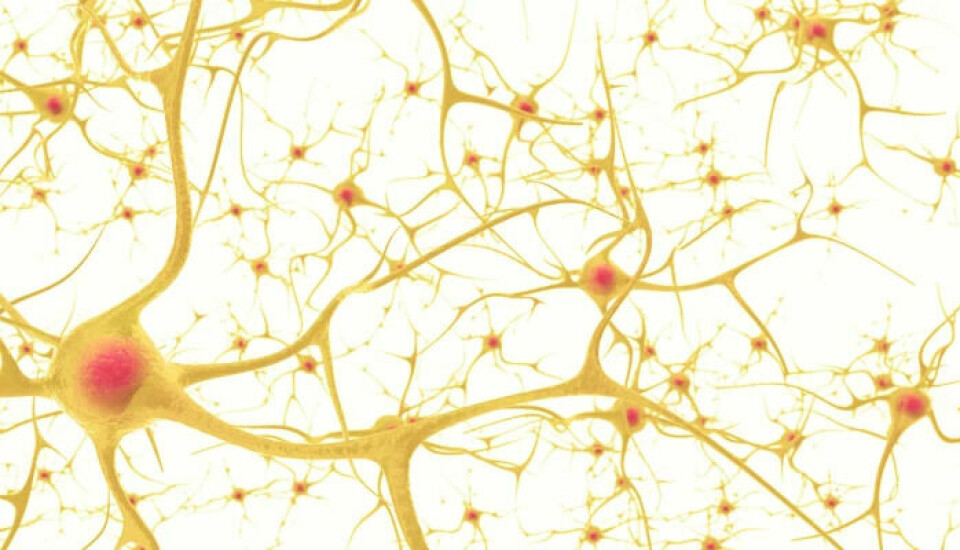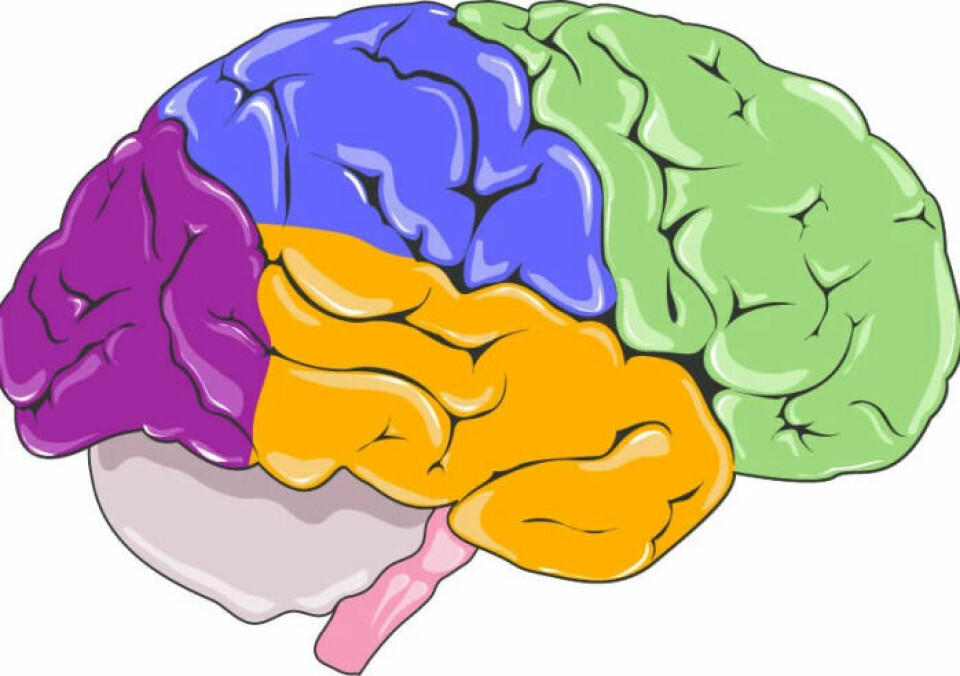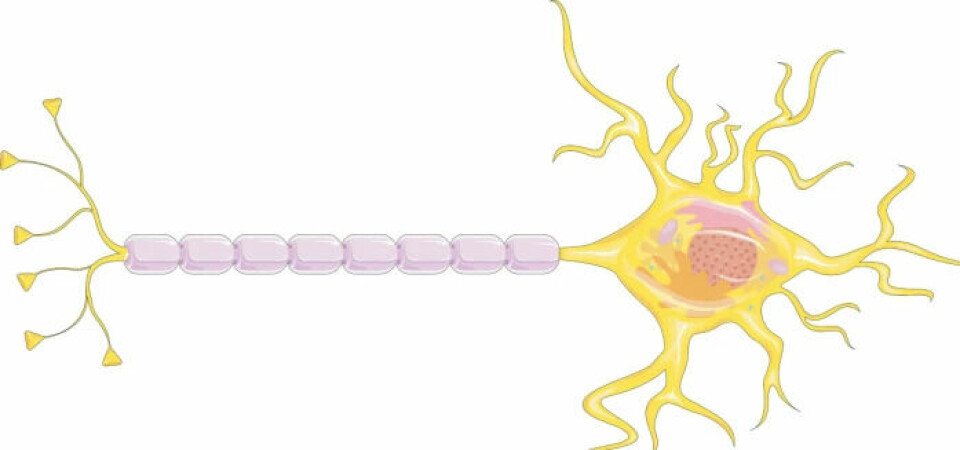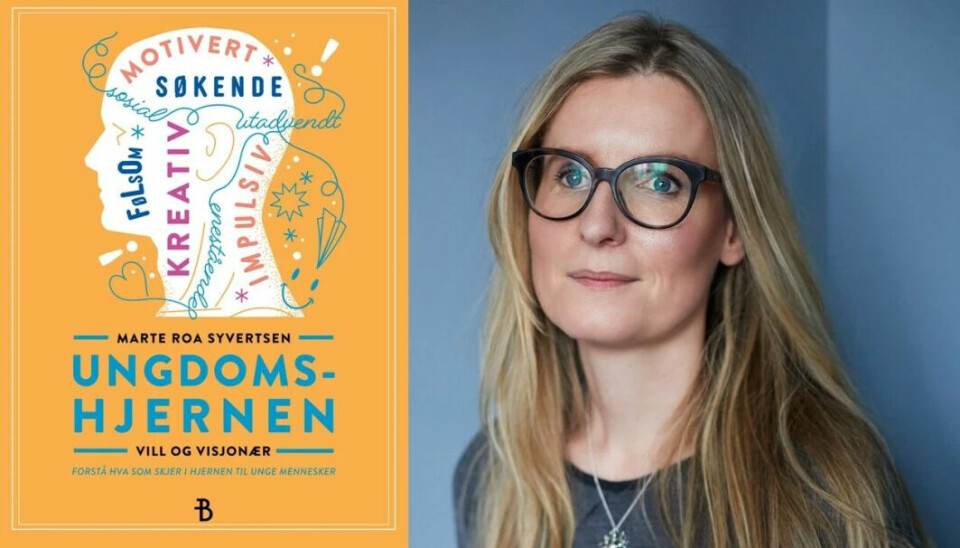
What happens in your brain when you become a teenager?
Hormones make teenagers’ emotions very strong. “They go full throttle with little to no breaks,” Marte Roa Syvertsen says.
A lot happens when you reach puberty. Your voice may change and you will experience hair growth on parts of your body. Your period will start. Your boobs, penis and scrotum will grow larger.
But it's not just your body that's physically changing. The brain also undergoes major changes.
Understanding what is actually going on can be helpful when you are right in the middle of it.
Especially because this important organ can both create trouble and give you opportunities that adults do not have.
Like paths in a forest
Since the moment you were born, your brain has been developing, Marte Roa Syvertsen tells sciencenorway.no.
She is a doctor and neuroscientist at Drammen Hospital. Now she has written the book “The Teenage Brain” (Ungdomshjernen).
When you learn things, new connections between brain cells form.
Everything you know and everything you have experienced become small networks of brain cells.
Like paths in a forest.

Cleanup in the brain
But when you reach puberty, something strange happens. The brain actually begins to get rid of some of what you learned as a child.
“The weak paths disappear,” Syvertsen says.
For example, if you learned a language when you were small child that you never really used, it may disappear.
This cleanup has an advantage. Instead of being a little good at many random things, you can become really good at what you need most.
Faster learning
At the same time, the adolescent brain is made for efficiently learning new things.
Because something else also happens when you reach puberty. The connections between brain cells are made faster than in children and adults.
“Simply put, a teenager’s brain does not need as many repetitions for the connection to be strong and robust,” Syvertsen says.
Just think of how much faster a teenager learns to use a new phone than an adult, she points out.
The ‘boss’ of the brain is not fully developed
Everything is in place for you to become really good at new things. But the adolescent brain can also work against you.
The front part of the organ, the frontal lobe, is the last part to become fully developed.
“The frontal lobe is the boss of the brain,” Syvertsen explains.
It is this part of the brain that makes decisions, suppresses emotions, and initiates actions.
Too little or too much homework
The frontal lobe can, for example, decide that you should do your homework even if you do not want to.
Or the opposite.
Because if you work too much with schoolwork, it may also be because the frontal lobe does not help you say stop.
Maybe it would have been better for you to prioritise friends or other activities.

Ignore the impulses
This little ‘brain boss’ is unique to us humans.
Animals are mostly controlled by instincts, such as eating and relaxing or mating to have children.
Humans, on the other hand, may decide to ignore these impulses.
We use reasoning instead.
Up to one-meter-long threads
Only when you are around 20 years old can the frontal lobe be considered fully developed.
But from the moment you are born, the frontal lobe constantly makes new connections with the rest of the brain.
One brain cell in the frontal lobe may be bound to thousands of brain cells elsewhere in the brain.
And the long threads can be up to a meter long, Syvertsen explains.

Emotions in high gear
But we have not yet talked about the biggest difference between the adolescent brain and other people's brains.
Namely the emotional side of it.
The hormones that cause your body to change also affect the brain.
The part of the brain that controls emotions simply goes into high gear because of them.
“They’re going full throttle with little braking,” says Syvertsen.
More afraid, angrier, happier, and sadder than adults
Even though your frontal lobe is better developed now than it was when you were a child, it has been given a more difficult task.
A young person who experiences something frightening does not have the same opportunity to use common sense to calm their reaction.
It means you become more afraid, angrier, happier, and sadder than adults.
Of course, you can still use reasoning to defy your feelings, but it can be good to know that it is only natural if this is difficult.

Intoxication of risk
Many teenagers also take more risks than children and adults.
The explanation for this is also found in the brain.
Specifically in the reward system, which is located more towards the centre of the brain.
This system secretes dopamine when you do something exciting or make a new accomplishment. It is a kind of natural intoxication.
Desire for kicks
And as a teenager, you get this reward easier than adults.
Therefore, the desire for kicks can be stronger than reasoning.
“This does not mean that young people do not think about consequences, but the ‘here and now’ counts most,” Syvertsen says.
“Be aware of what strengths you have”
Syvertsen's book about the teenage brain is aimed mostly at parents. She has nevertheless included some advice for teenagers who find these changes difficult.
"It will pass" is the first piece of advice in the book.
“It is a phase, and it will pass on its own,” Syvertsen tells sciencenorway.no. “It applies to you, but also those around you.”
Finally, she wants to encourage teenagers to seize the opportunity that their brain gives them.
“Be aware of what strengths you have and the doors that are open. You have a shorter way to go to get good at things.”
———
Translated by Alette Bjordal Gjellesvik.
Read the Norwegian version of this article on ung.forskning.no
Reference:
Marte Roa Syvertsen: The Teenage Brain - wild and visionary (Ungdomshjernen - vill og visjonær) Bonnier Norsk Forlad, 2022
































